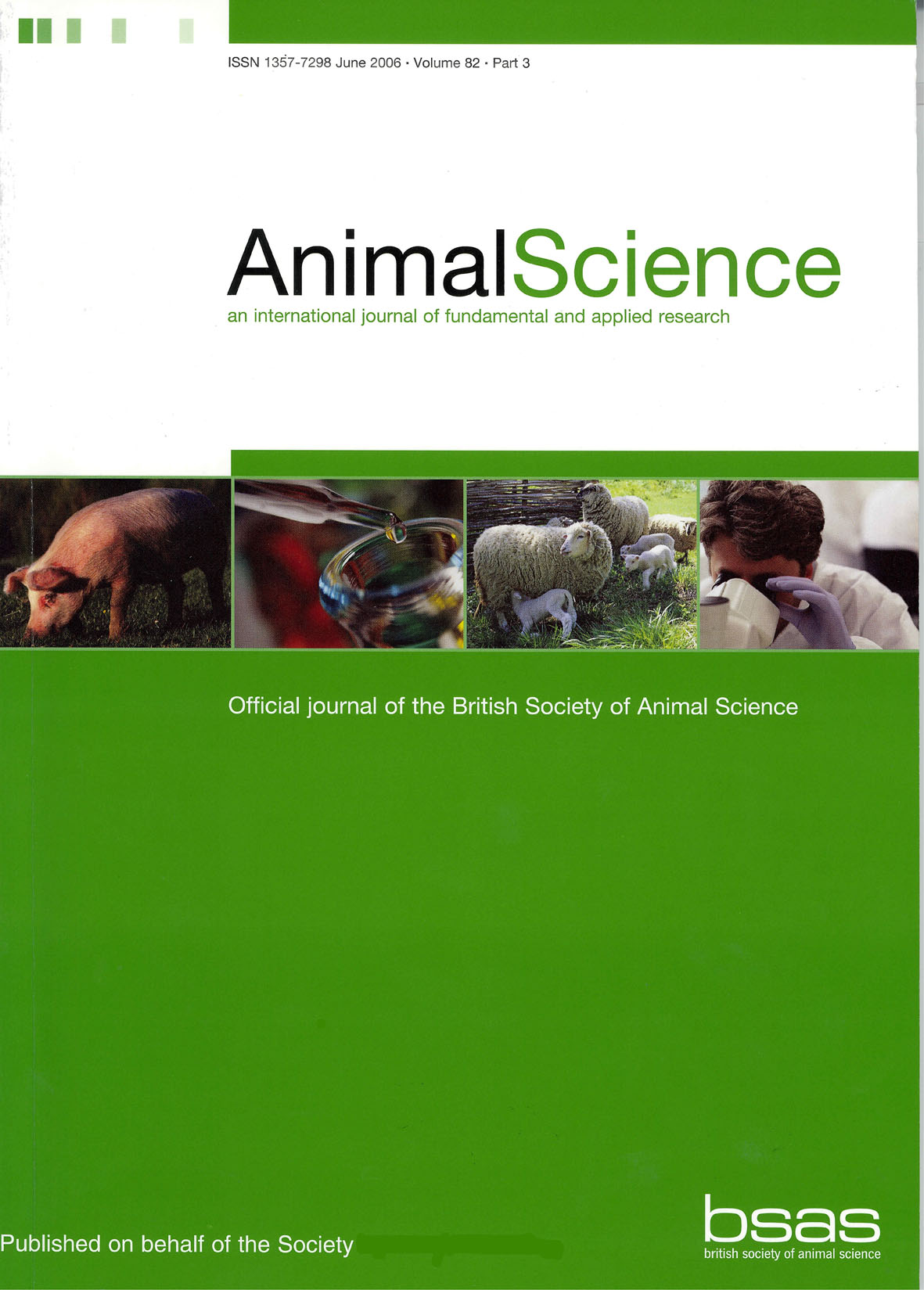Article contents
Allometric association between in vivo estimation of body composition during growth using deuterium dilution technique and chemical analysis of serial slaughtered pigs
Published online by Cambridge University Press: 09 March 2007
Abstract
The objective of this study was to develop accurate mathematical-statistical functions to estimate body composition of live pigs between 20 and 140 kg weight from total body water (TBWA) determined by the deuterium dilution technique. Chemical body compositions during the growth period are essential input parameters for biological pig growth models, which are used to estimated the nutrient requirements, improve the entire production system, determine optimal slaughter weight, optimize selection for food intake, etc. In the present study, 48 pigs (17 female and 31 castrated males) were used in an experimental station to obtain protein, lipid, ash and water content at 20, 30, 60, 90, 120 and 140 kg live weight. At each target weight, body water of the animals was determined by the deuterium dilution technique. Eight pigs of each live-weight group were slaughtered and chemically analysed. Water content of the empty body decreased from 74 to 53%, whereas lipid content rose from 7 to 30%. Between 20 and 30 kg body weight, protein content increased from 16 to 17% and thereafter decreased to 16%. Ash content was constant at 3%. To estimate body composition of the remaining animals from TBWA (%) determined by deuterium dilution technique, two sets of exponential prediction functions were used to describe the relationship between chemically analysed body components and TBWA (%). The first set of prediction functions fitted one intercept for the entire growth period and the second set of prediction functions fitted a different intercept for each weight class. Correlation coefficients between estimated and chemically determined empty body water, lipid, protein and ash for the first set of functions were 0·93, 0·86, 0·83 and 0·65, respectively. The second set of prediction functions showed higher accuracy (2 to 10%), but had the disadvantage of non-continuous estimates over the entire growth period. In contrast, by using the first set of prediction functions, a continuous accurate estimation of body composition of live pigs was obtained over a large range of growth (20 to 140 kg) based on deuterium dilution space.
- Type
- Research Article
- Information
- Copyright
- Copyright © British Society of Animal Science 2006
References
- 11
- Cited by


